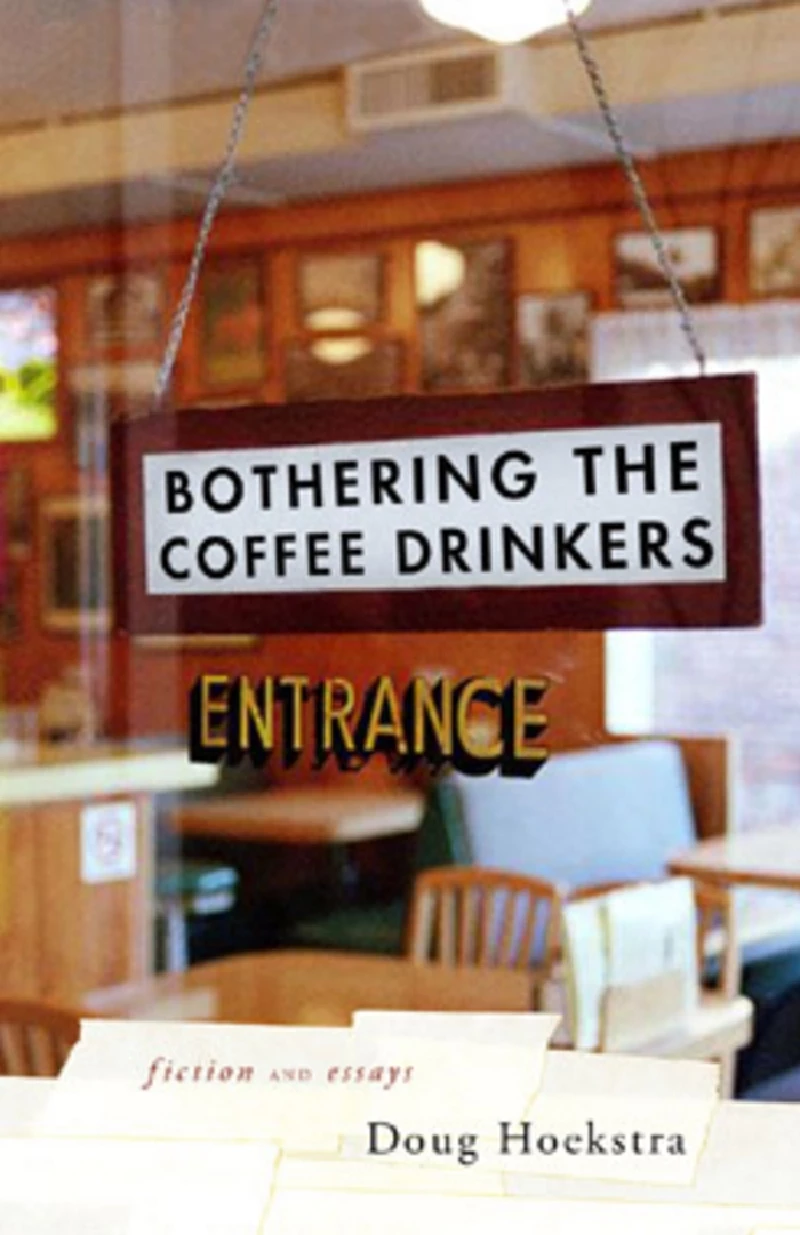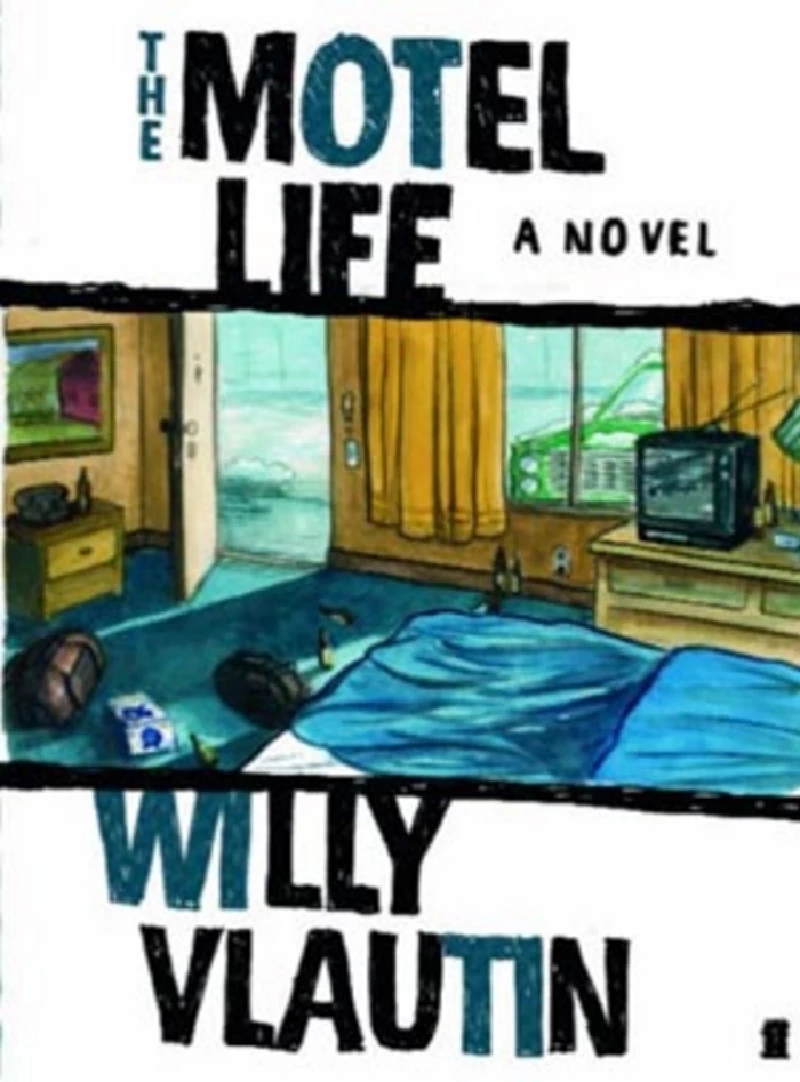Miscellaneous - Doug Hoekstra and Willy Vlautin
by John Clarkson
published: 23 / 5 / 2006

intro
Nashville-based singer-songwriter Doug Hoekstra and Willy Vlautin, the front man with Portland, Oregon-based alt. country band Richmond Fonatine have both just released their fictional debuts. John Clarkson profiles them both
While the shelves of bookshops and libraries’ music sections are filled with often ghost-written autobiographies, only a few musicians have turned their hand to the art of writing fiction. Like those musicians who have taken up acting, musician authors are a mixed breed. For every Frank Sinatra, there are others who have been proved less adapt at making the transition. Although the first part of his memoirs ‘Chronicles : Volume One’ deservedly won much acclaim when it was published at the end of 2004, Bob Dylan’s stream-of-consciousness novel ‘Tarantula’ was confused and obscure. Ex-Sleeper front woman Louise Wener’s ‘Goodnight, Steve McQueen’ and ‘The Big Blind’ were financially lucrative, but poor pastiches of Nick Hornby and Tony Parsons, just the latest additions in the cynical treadmill of novels in the already over-worked “bloke genre.” Rock musician fiction seems to work best when those musicians-turned-authors build upon what they have already achieved in their song craft. Nick Cave’s novel ‘And the Angel Saw An Ass’ was as powerfully biblical and lyrical as his songs. The Kinks’ Ray Davies and the Who’s Pete Townshend, with their subtle short story collections, ‘Waterloo Sunset’ and ‘Horse’s Neck’, merged sharp working class social observations with occasional flights of fancy, just as they have done with their best known songs. Musicians Doug Hoekstra and Willy Vlautin both have recently published their fictional debuts and have similarly expanded and developed upon what they have already created in their song writing. Hoekstra is the Chicago-born, but Nashville-based veteran of nine albums, two with his early band Bucket No. 6 and seven as a solo artist. While his music incorporates a variety of styles, merging together often sometimes in the same song elements of the blues, avant garde, jazz, folk, pop and rock, his lyrics are usually narrative. They tell of often ordinary lives and make them eventful. ‘Bothering the Coffee Drinkers’, which has been published by Canopic Publishing, consists of fifteen of Hoekstra’s short stories and two autobiographical pieces. The masterly ‘That’s How My Strong Love Is’ tells of aspiring 80’s teenage musicians, Don and Buck, who on their first visit to Memphis, find themselves transported 20 years back in time and attending an Otis Redding/Stax recording session. Whether this has actually happened or whether, as Hoekstra latterly also hints, they may have simply smoked too much of Buck’s powerful dope, is left to the reader’s imagination. ‘That’s How Strong My Love Is’ then poignantly moves forward another 20 years in the future to find Buck dead and Don, now a solo artist, returning to Memphis and remembering his lost friend. Other stories in this collection are equally moving. Johnny Q, the singer-songwriter protagonist of the title story, starts wearily out on a sparsely-attended coffee house tour, in which every venue he plays his arch rival seems to have sold out the week before, but finds hope for the future when he meets Joy, a genuine fan. In ‘Stage Energy’ Chicago-based songwriter Cindy surprises herself by spontaneously pulling off the greatest recording session of her career. She refuses to let anything ruin what has been an especially good day, even though she discovers immediately afterwards that one of her makeshift band of musicians, an until-now just-rumoured junkie, has been shooting up during the recording session in the studio’s toilet. ‘Bothering the Coffee Drinkers’ is subtitled ‘Musical Fiction and Essays’. With such a blueprint, Hoekstra has set himself a difficult task. Endless stories about bands on the road and burnt-out singer-songwriters still waiting for their big break, however well written, would quickly stand the risk of becoming monotonous and boring. Hoekstra, as eclectic in his prose writing as in his musicianship, however, cleverly circumvents this problem by making several of his stories deal with music only in the loosest sense. The tragic main character of ‘Billy and the Tuba’, a medical claims clerk who has been driven mad by his bullying boss, imagines forcing her to play day after day over the tuba his wastrel of a father left him before running off and then attempts to set himself on fire. The protagonist of ‘Next Of Kin’ meanwhile listens to an old Irma Thomas obscurity on the radio as he tries to make sense of his own life and his confused relationship with his girlfriend, after finding out that his potential father-in-law has been having an affair. ‘Bothering the Coffee Drinkers’ is book ended by the two Hoekstra memoirs. ‘The Blarney Stone’, the opening piece in the collection, tells of a visit and the wish Hoekstra made when touring the UK to the famous Irish national monument and kissing stone, exactly a year to the day before his son Jude was born. ‘Berlin (A Memoir)’, the last piece, finds Hoekstra in the German capital and meeting with a rich dentist and part-time flamenco guitar player, who feels angry and humiliated, despite all his wealth, at never having received the recognition that he feels his music deserves. While Hoekstra’s prose usually tells of events of massive personal symbolism to their protagonists or which have set them temporarily off-kilter, Willy Vlautin writes in his fiction of downbeat characters whose lives from the outset have met with bad luck and misfortune. Vlautin is the front man with the much acclaimed Portland, Oregon-band alt.country band Richmond Fontaine, who have now recorded seven albums together. Like Hoekstra, the majority of Vlautin’s lyrics are narrative, often taking their inspiration from his blue collar upbringing in Reno, Nevada. ‘The Motel Life’, his debut novel which has just been published by Faber and Faber, tells of two hapless Reno-based brothers, Frank and Jerry Lee, who take to the road after Jerry Lee knocks down and kills a boy in hit and run accident. ‘The Motel Life’ unfurls like a tragic country ballad. Even before Frank and Jerry Lee make their escape from the hit and run, the boys have already lost their mother to cancer and their father to prison after he has incurred large gambling debts. Jerry Lee has also had his leg severed after trying to jump a train, and Frank has discovered his first love, Annie, turning tricks with her hooker mother. The boys in their flight from Reno are trying to run away from themselves and their dire situation as well as the accident and towards something hopefully better. Things, however, get worse when a guilt-ridden, drunken Jerry Lee, botching a suicide attempt, shoots himself in his already damaged leg and winds up in hospital. Vlautin manages to successfully steer his book away and keep it from becoming melodramatic with sparse, spare prose and naturalistic dialogue. Frank is a natural-born storyteller. The tall tales he keeps himself and Jerry Lee entertained with for hours at a time, with themselves and their friends and lost relatives as principal characters, and which involve pirates, adventures at sea, and glamorous women, highlight perfectly the growing distance between the way their life is and the way the still very young and naïve brothers would like it to be. Aspiring artist Jerry Lee’s simple drawings of motels, bars, road signs and casinos which preface each new chapter (in fact those of artist Nate Beatty) also help to further heighten the increasingly desperate circumstances the boys find themselves drawn into. Vlautin’s attention to the more minor characters is also excellent. The alcoholic hooker mother who puts her daughter on the game to pay her off her spiraling debts ; Frank’s friend Tommy who to pay off the local hoodlum successfully puts all his money on that last bet but then blows it all on the roulette tables, and Earl Hurley, Frank’s kindly one time boss, a used car entrepreneur, all create stories of their own. Doug Hoekstra’s stories draws comparison with those of Raymond Carver, telling of the small shocks, those little events that to other characters in the same situation might not mean much, but to those involved represent everything and are totally life-changing. Willy Vlautin, like John Steinbeck, meanwhile celebrates the endurance of those who have everything stacked against them from birth. ‘The Motel Life’ for all its sadness and tragedy is curiously life-affirming. The characters of both ‘Bothering the Coffee Drinkers’ and ‘The Motel World’ are portrayed throughout with dignity, empathy and compassion. In these, their first books, Doug Hoekstra and Willy Vlautin have created enthralling fiction and what should prove to be two of the best fictional debuts of this year.
Picture Gallery:-

most viewed articles
current edition
Carl Ewens - David Bowie 1964 to 1982 On Track: Every Album, Every SongColin Blunstone - Thalia Hall, Chicago, 16/7/2025
Visor Fest - Valencia, Spain, 26/9/2025...27/9/2025
Bathers - Photoscapes 1
Bathers - Photoscapes 2
Billie Eilish - O2 Arena, London, 10/7/2025
Editorial - July 2025
Cathode Ray - Interview
Loft - Interview
John McKay - Interview
previous editions
Heavenly - P.U.N.K. Girl EPTrudie Myerscough-Harris - Interview
Beautiful South - Ten Songs That Made Me Love...
Pixies - Ten Songs That Made Me Love...
Boomtown Rats - Ten Songs That Made Me Love....
Fall - Hex Enduction Hour
Jimmy Nail - Interview
Doris Brendel - Interview
Sam Brown - Interview Part 2
Oasis - Oasis, Earl's Court, London, 1995
most viewed reviews
current edition
Amy Macdonald - Is This What You've Been Waiting For?Sick Man of Europe - The Sick Man of Europe
Alice Cooper - The Revenge of Alice Cooper
Phew, Erika Kobayashi,, Dieter Moebius - Radium Girls
Lucy Spraggan - Other Sides of the Moon
Blueboy - 2
Cynthia Erivo - I Forgive You
Davey Woodward - Mumbo in the Jumbo
Lapsley - I'm a Hurricane, I'm a Woman In Love
Philip Jeays - Victoria
Pennyblackmusic Regular Contributors
Adrian Janes
Amanda J. Window
Andrew Twambley
Anthony Dhanendran
Benjamin Howarth
Cila Warncke
Daniel Cressey
Darren Aston
Dastardly
Dave Goodwin
Denzil Watson
Dominic B. Simpson
Eoghan Lyng
Fiona Hutchings
Harry Sherriff
Helen Tipping
Jamie Rowland
John Clarkson
Julie Cruickshank
Kimberly Bright
Lisa Torem
Maarten Schiethart